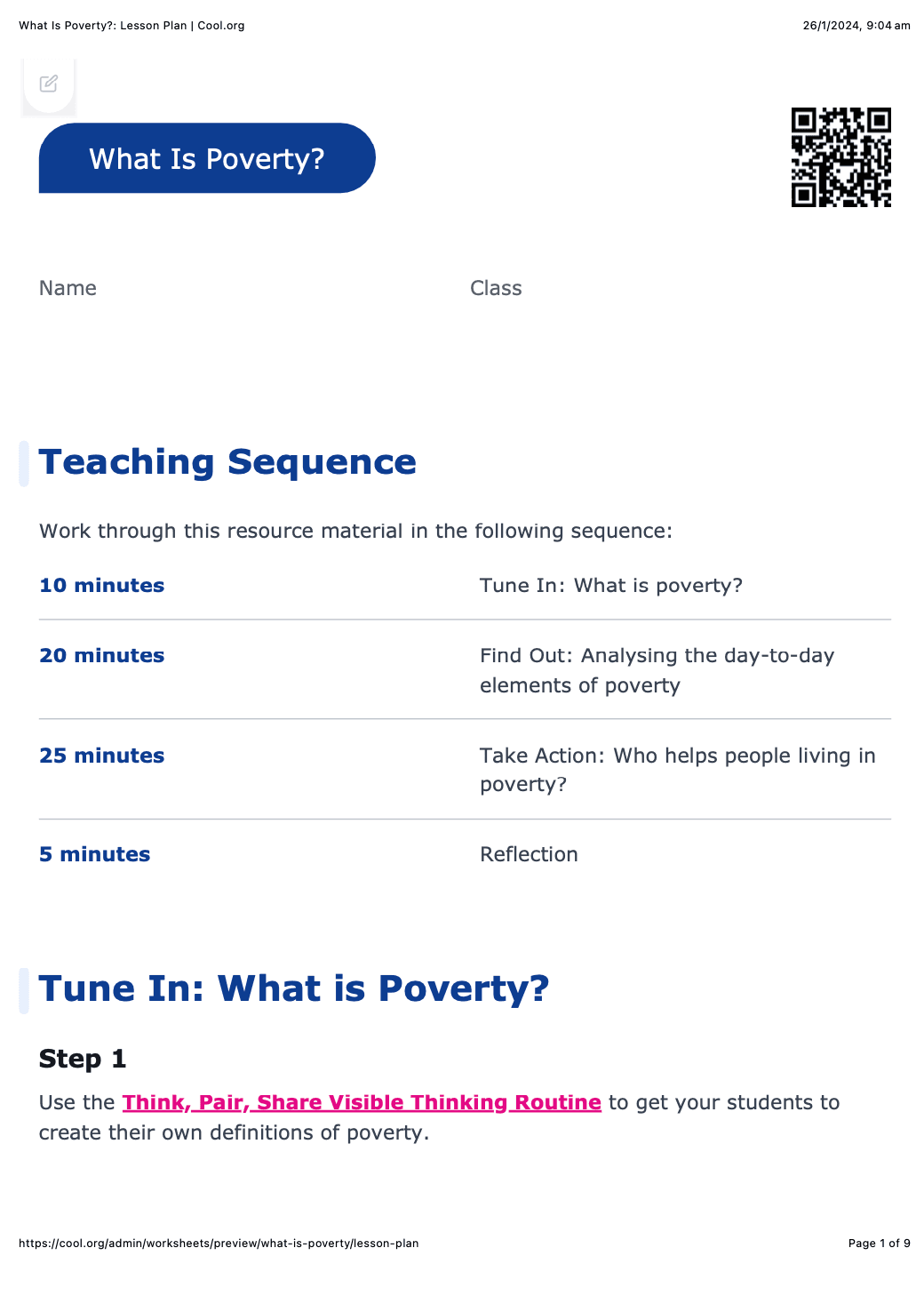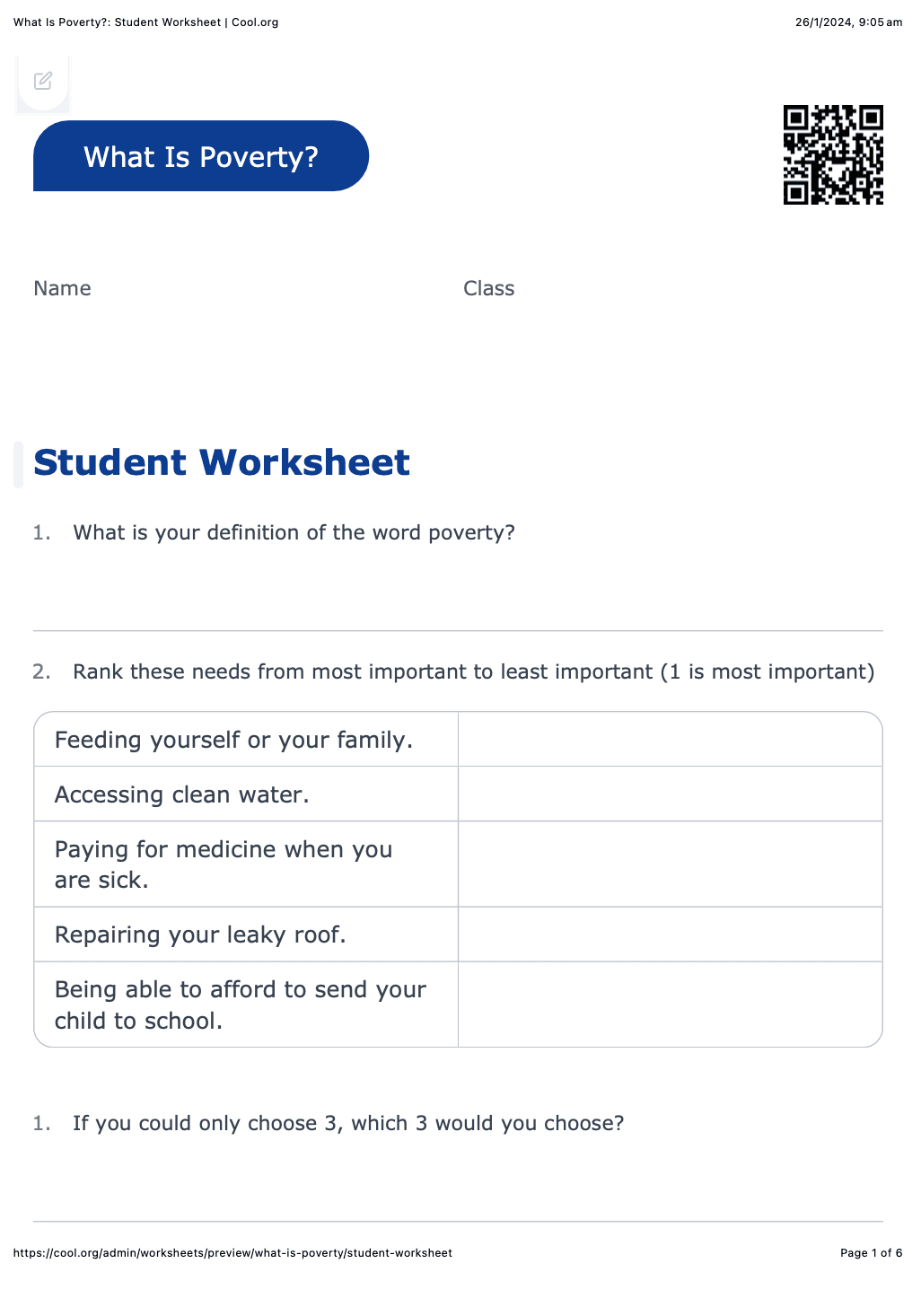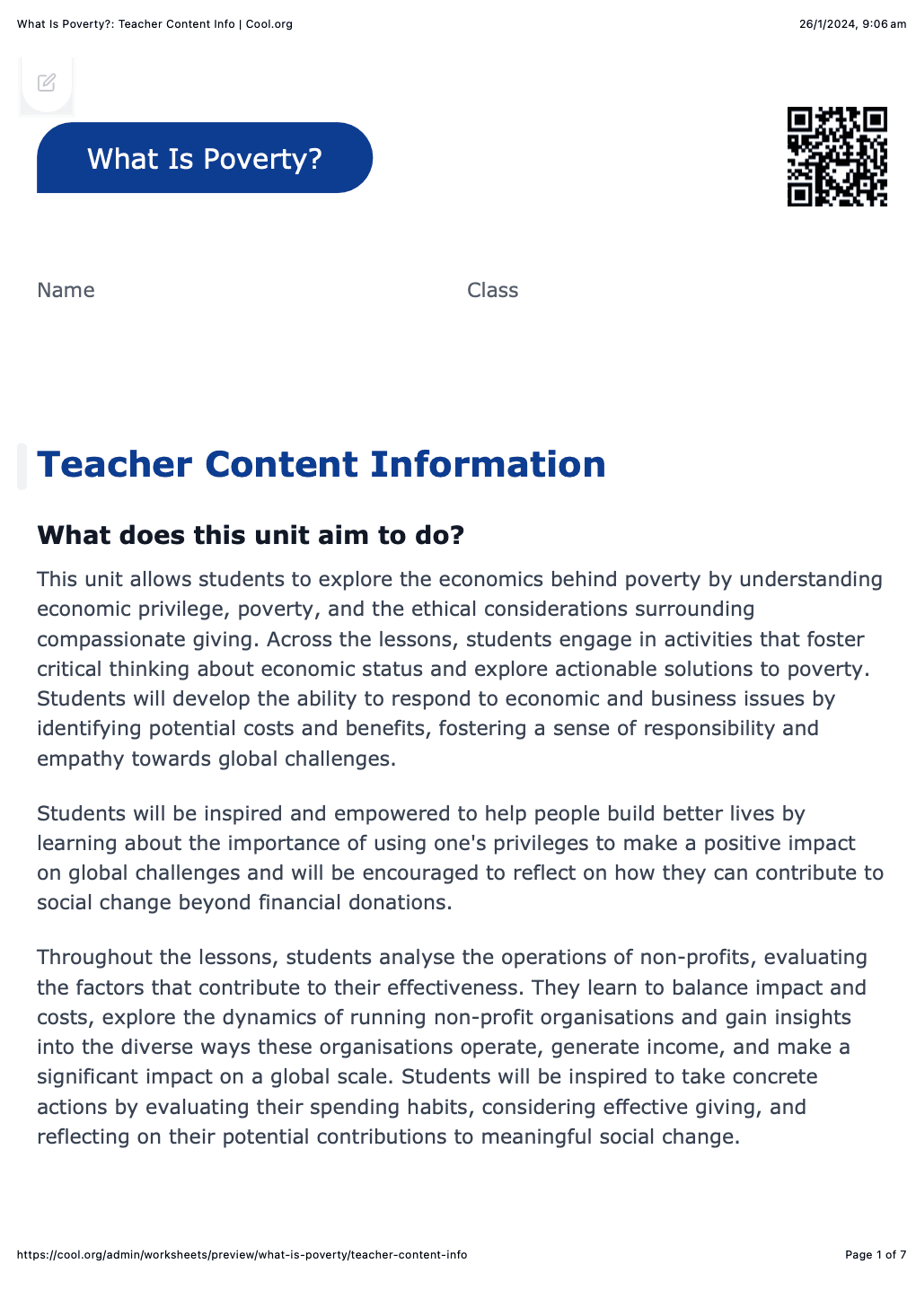Learning intentions:
Students will...
- explore the concept of poverty by investigating and analysing both economic and other elements that relate to it.
Success criteria:
Students can...
- define poverty
- outline some of the elements of poverty
- explain ways that poverty can be eradicated in the world.



